As a designer, a game developer, and a lifelong advocate for disability and neurodiversity, my passion has always been to build bridges – creating accessible and therapeutic solutions that empower and engage. For over 17 years, I’ve also navigated the world with Multiple Sclerosis (MS). This isn't a story of limitation, but rather one that has granted me a unique lens, an insider’s perspective that fuels my drive to innovate for my community.
It’s this very intersection of personal experience and professional passion that sparked AlphaRise, the focus of my current research project at SCAD, which I began this year. This project is more than an academic initiative; it's a deeply personal mission to address one of the most pervasive, yet often invisible, challenges of MS: fatigue. I'm incredibly excited about where this research journey is heading.
The Unseen Challenge: Understanding MS Fatigue
If you’re not familiar, MS fatigue isn't just "being tired." It’s an overwhelming sense of exhaustion that isn't necessarily related to activity levels and isn't relieved by rest. Research shows that 75-90% of people with MS (pwMS) experience this, significantly impacting their quality of life. Current management strategies – medication, exercise, cognitive-behavioral techniques – offer some relief, but often effectiveness is modest, and long-term adherence can be low. There’s a clear, unmet need for more engaging, accessible, and effective interventions.
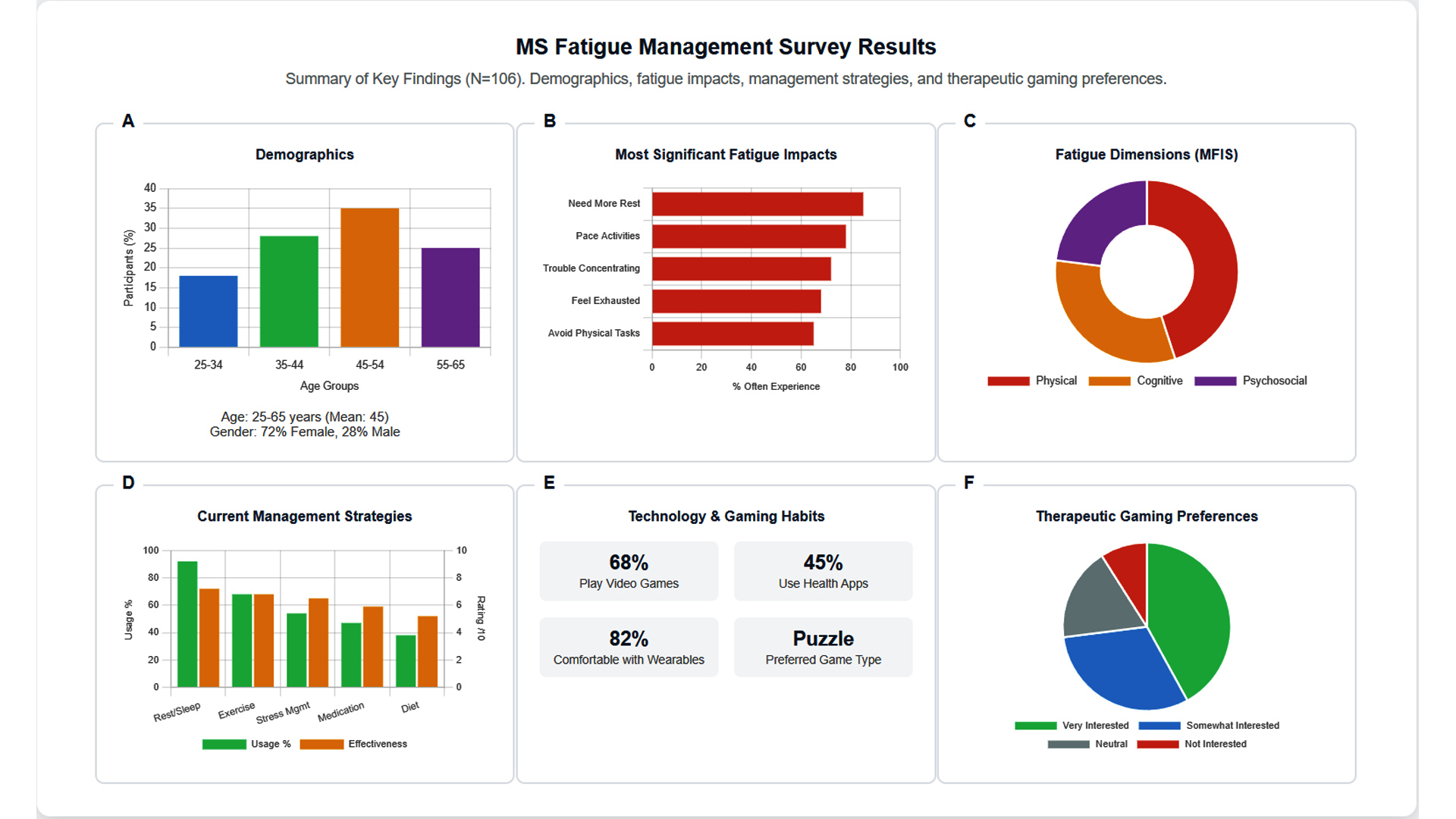
Bridging the Gap with Neurogaming: Introducing AlphaRise
This is where AlphaRise comes in. It’s an adaptive neurogaming intervention that uses a closed-loop electroencephalogram (EEG) system. In simpler terms, AlphaRise is a game designed to help people with MS recognize and manage their fatigue by training their brain.
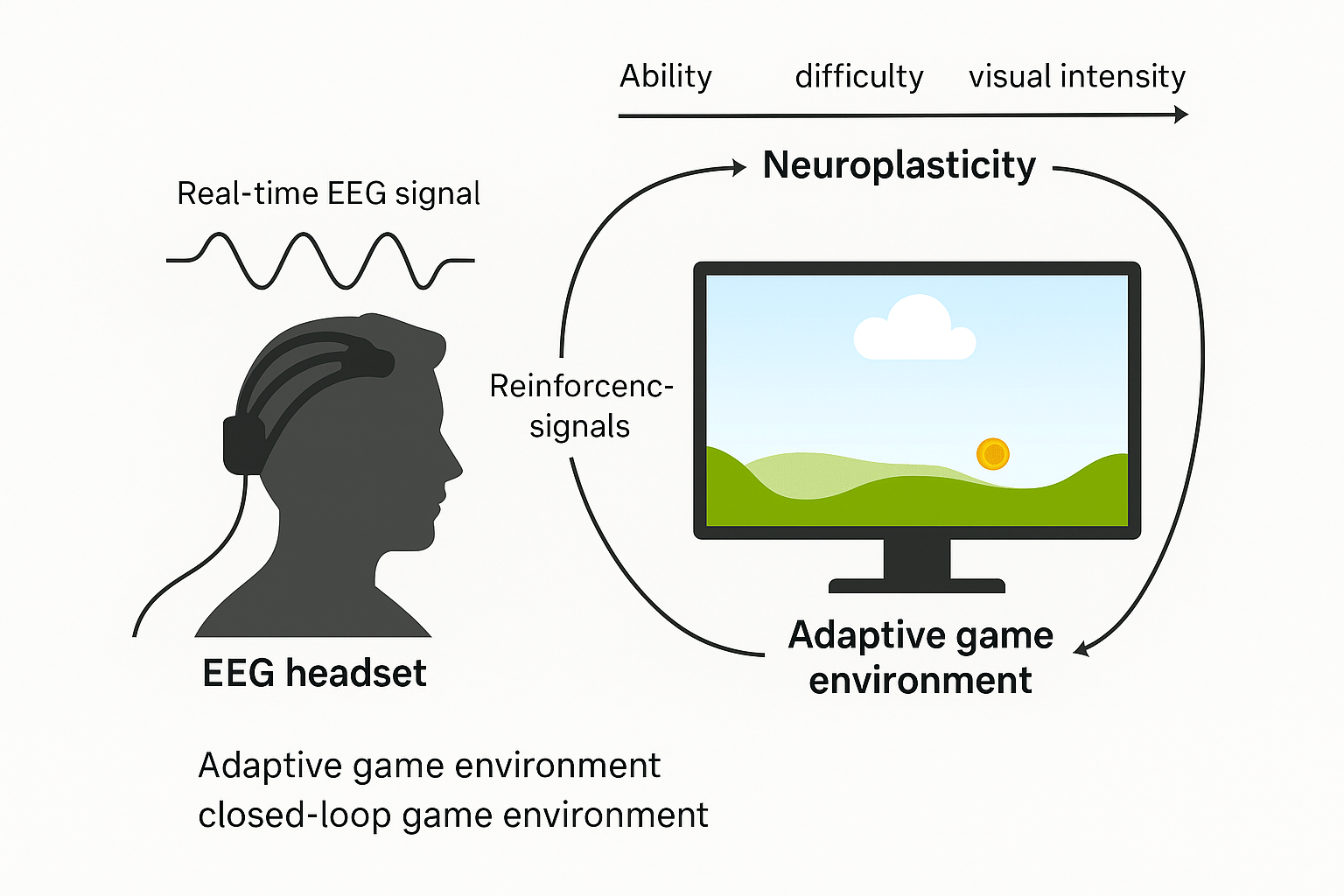
Here’s the core idea:
-
Real-time EEG signals (brainwaves) related to fatigue (like excess theta waves and reduced alpha/beta activity) are fed into the game.
-
The game provides neurofeedback, meaning the game's environment and challenges adapt based on the user's brain activity.
-
Grounded in principles like neuroplasticity (the brain's ability to change) and operant conditioning (learning through reinforcement), users learn to self-regulate their brain activity through repeated, adaptive gameplay.
-
The goal is to help users manage their fatigue states, offering a novel complement to existing strategies.
The design of AlphaRise is built upon solid theoretical frameworks, including Neuroplasticity Theory, Flow Theory (essential for keeping players engaged), and established EEG biomarkers for fatigue. At its heart, it’s about creating an experience that is not only therapeutic but also enjoyable and empowering.
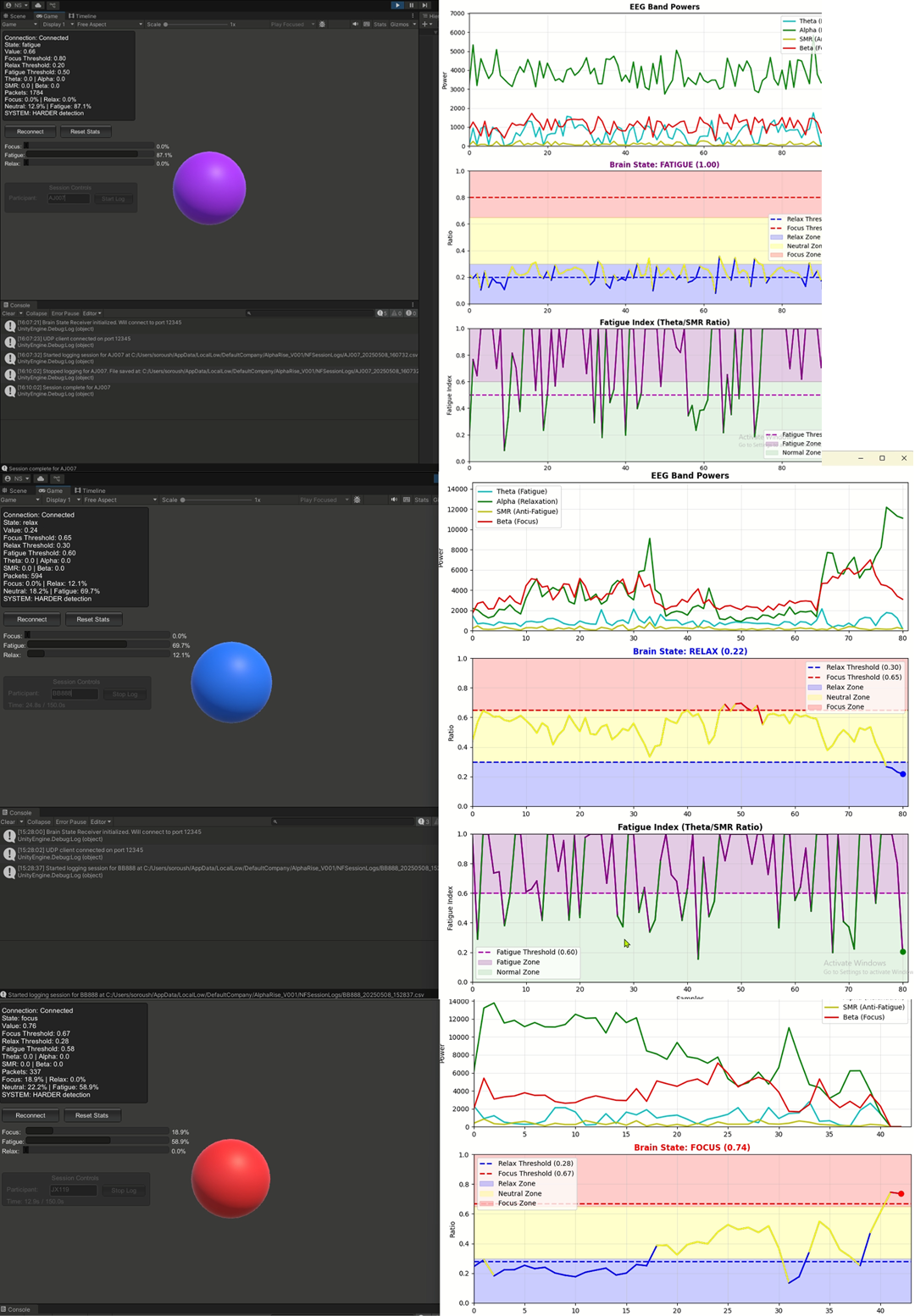
The Journey So Far: From Concept to a More Sophisticated Prototype
The initial stages of AlphaRise involved:
-
Deep Research: Understanding the existing landscape of MS fatigue management, identifying gaps, and exploring the potential of neurofeedback applications.
-
Listening to the Community: This has been a cornerstone of the project. To gather firsthand insights, I launched an online survey aimed at understanding how individuals with MS experience fatigue, the effectiveness of their current management strategies, and their interest in therapeutic gaming.
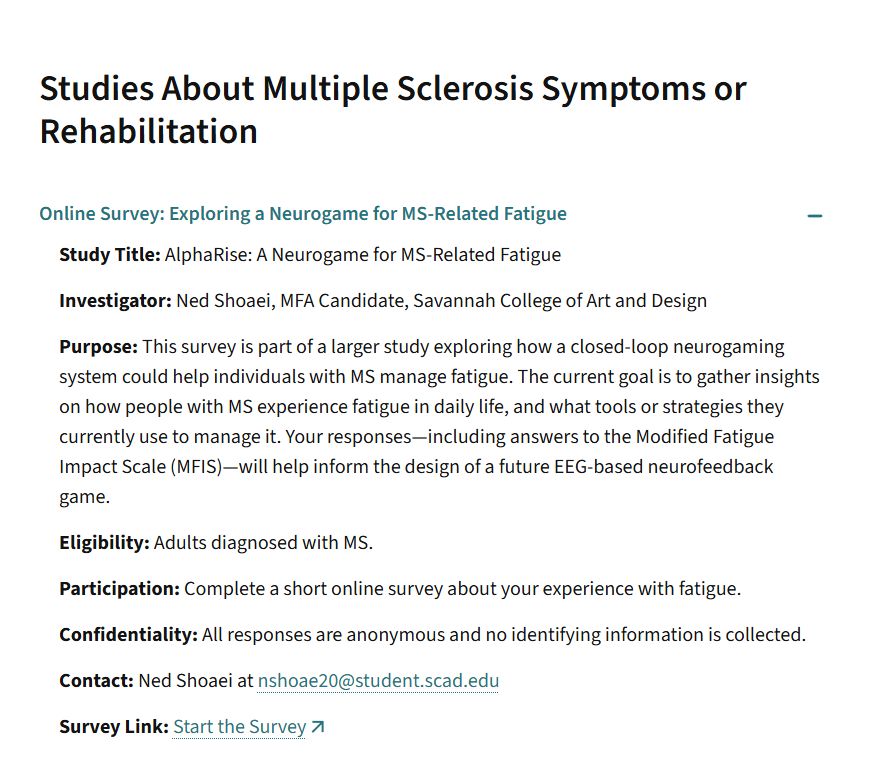
-
Expert Consultation: Engaging with neurologists and neurofeedback researchers to refine the focus and technical approach.
-
Prototyping: Starting with a basic proof-of-concept using a DIY neuroscience kit to understand how brain signals could translate into game mechanics. This has now evolved towards the "AlphaRise Maze Game" – the target system for MS fatigue, designed with MS-specific accessibility features in mind. The second phase of this research is now being developed using the EMOTIV EPOC X, a 14-channel wireless EEG headset, allowing for more robust and detailed brainwave data.
A key learning has been that even simple feedback can be powerful, and designing with and for the community is paramount. For instance, an initial class playtest of a simplified prototype showed high user engagement and helped identify areas for refinement, like threshold recalibration for fatigue detection.
Why a Game? Why Now?
As a game developer, I know that games are brilliant at teaching complex systems through interaction and feedback. They can create "flow states," keeping users challenged but not overwhelmed. For something as nuanced as managing brain activity, the engaging, adaptive nature of a game offers a unique advantage over more static training methods. The AlphaRise Maze Game is being designed to be:
-
Fatigue-Aware: Dynamic Difficulty Adjustment (DDA) means the game adapts if it detects signs of fatigue, making sessions manageable.
-
Accessible: It requires no manual input (pure brain-control), making it usable for those with motor limitations, and features clear, calming visuals.
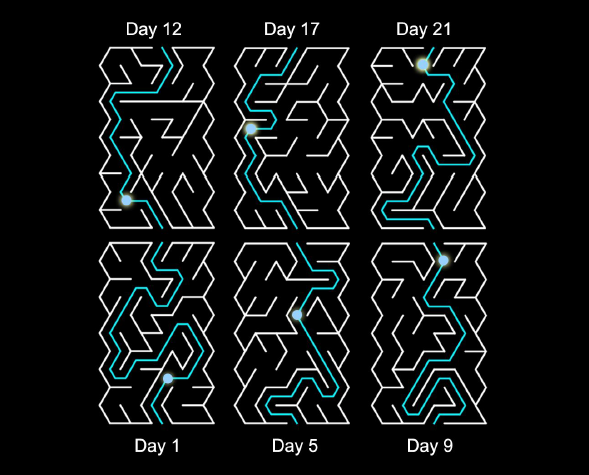
Looking Ahead: The Next Chapter for AlphaRise
AlphaRise is still on its development journey. The next steps involve further iteration on the maze game, incorporating more engaging elements, refining the adaptive algorithms using data from the EMOTIV EPOC X, and, crucially, conducting playtests with individuals with MS. The goal is to collect preliminary data on its effects on fatigue, usability, and engagement.
This project is more than academic research; it's a synthesis of my personal journey, my professional skills, and my commitment to the MS community. It's about exploring how we can use technology creatively and thoughtfully to make a real difference in people's lives.
I’m excited to continue developing AlphaRise and share its progress. If you’re interested in learning more about accessible game design, therapeutic gaming, or the intersection of technology and MS care, I’d love to connect and hear your thoughts!
Link to AlphaRise Neurofeedback System initial play-testing: